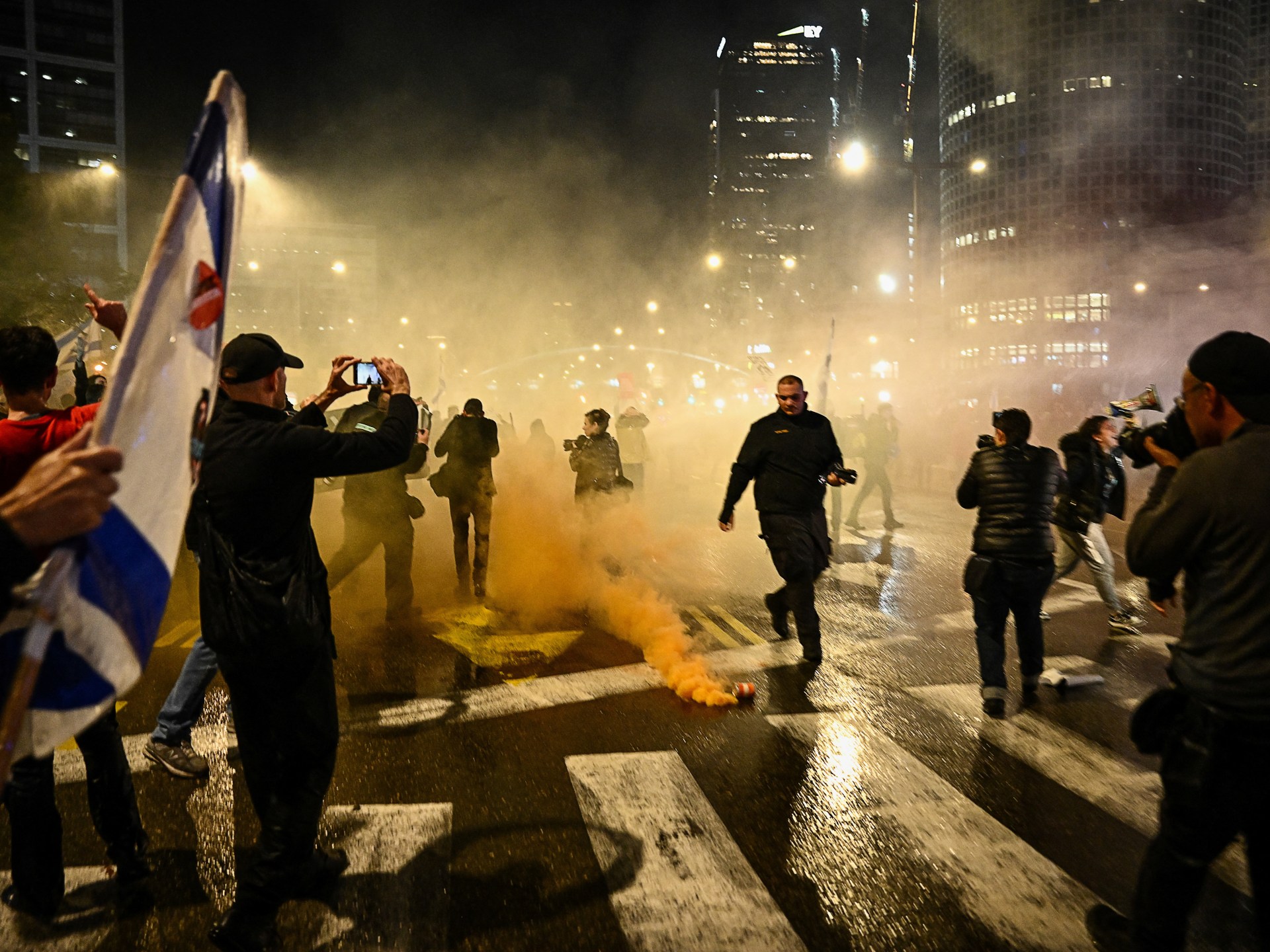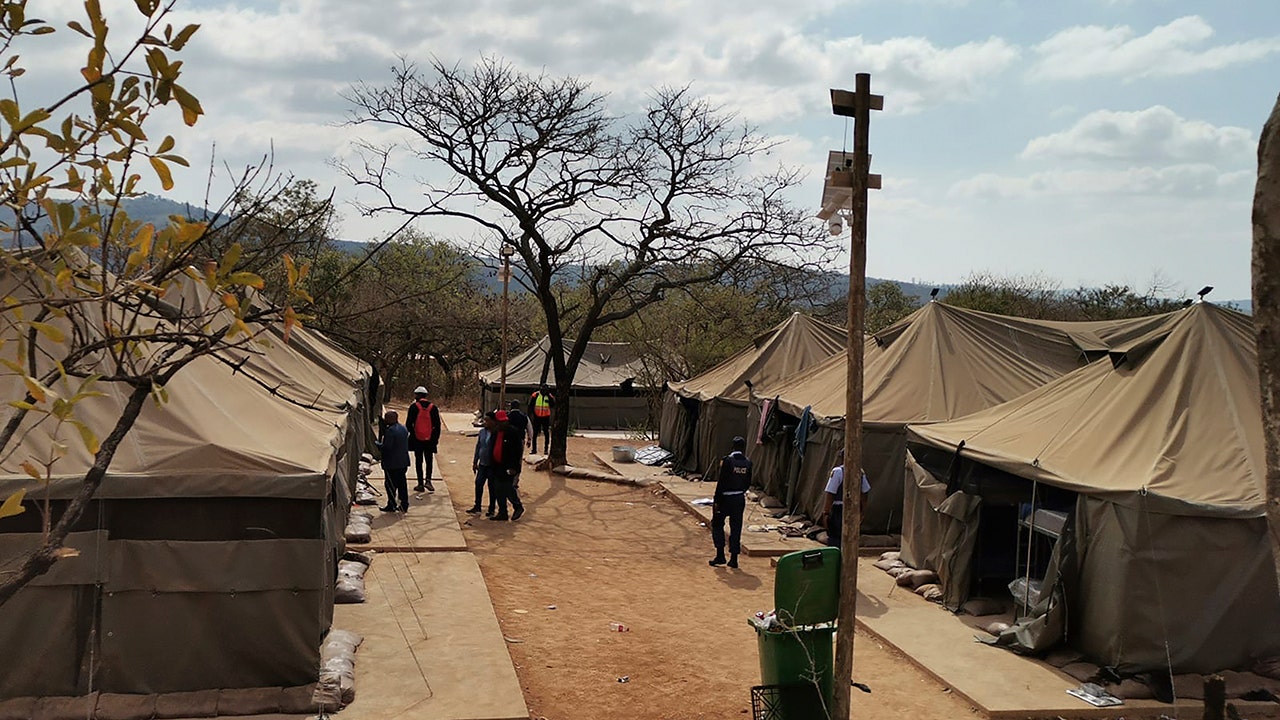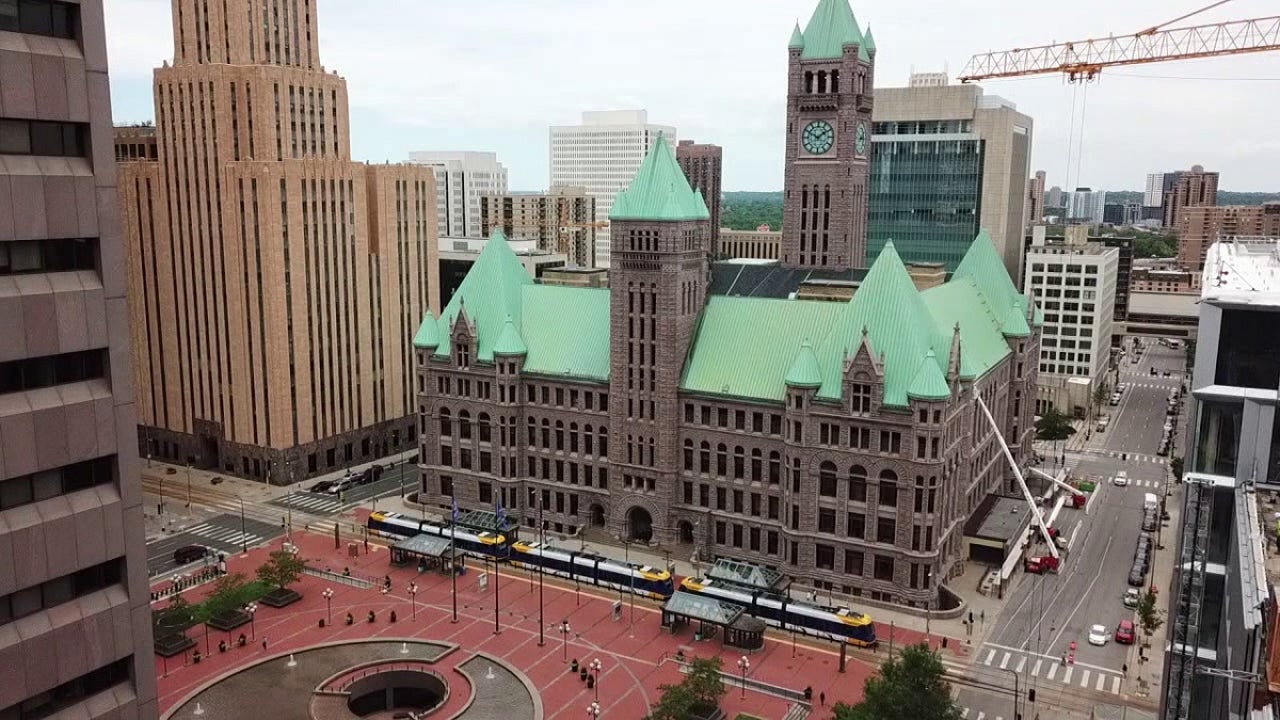World
Israeli delegation expected in Qatar for more Gaza talks

Framework of the agreement includes a six-week pause in fighting that could see an exchange of captives and increase in aid.
An Israeli delegation is soon expected in Qatar to continue talks on securing a pause in the war on Gaza that could see captives released.
The talks began last week in Paris and were attended by the chiefs of Israel’s spy agency Mossad and domestic security service Shin Bet, along with mediators from the United States, Qatar and Egypt.
The Israeli delegation returned from the French capital, with Israeli national security adviser, Tzachi Hanegbi, saying during a televised interview late on Saturday that “there is probably room to move towards an agreement”.
According to Israeli media, negotiators had a meeting with the Israeli cabinet, which agreed to send a delegation to Qatar in the coming days to continue negotiations.
Al Jazeera’s Willem Marx, reporting from occupied East Jerusalem, said Israeli media are talking about the details of a framework for talks, which could potentially see a pause in fighting for up to six weeks if a captive is released each day from Gaza.
“It looks like there will be around 40 Israeli hostages being released – that would be women civilians, female soldiers, older men with serious medical conditions – in return for hundreds of Palestinian prisoners currently held in detention or Israeli jails.”
Marx said an agreement could also lead to a considerable increase in humanitarian aid going into the Gaza Strip and a potential return of Palestinians to the heavily bombarded and attacked areas in the northern part of the enclave.
“Hamas, crucially, has not commented on any of this,” he said.
Prior to the latest round of talks, Hamas had said it would accept nothing less than a complete cessation of fighting and an end to the siege of Gaza, something Israeli Prime Minister Benjamin Netanyahu had dismissed while emphasising “total victory” over the armed group.
Close to 30,000 Palestinians, mostly women and children, have been confirmed killed by the Ministry of Health in Gaza, with thousands more missing and presumably still under the rubble.
More than 100 captives, including Israelis and other nationals, were released as part of a one-week pause in fighting in November, which also saw hundreds of Palestinians released from Israeli prisons.
‘We need a new government’
In Israel, pressure has been steadily building on Netanyahu and his war cabinet to strike a deal to secure the release of the captives.
Thousands of protesters once more gathered at what has become known as “hostages square” in Tel Aviv on Saturday to demand swifter action and new elections, with police using water cannon to disperse the crowds.
Al Jazeera’s Hamdah Salhut, reporting from Tel Aviv, said Saturday’s gathering was the “biggest show of force since the war began”.
“Antigovernment protesters say they will continue coming out every Saturday in full force until their message is received by the Israeli government.”
Neria Bar, a protester, told Al Jazeera that the government has failed and needs to be replaced.
“We need a new government, new people, new leadership, someone that counts us in and thinks about us, not just about themselves,” she said.

World
Celine Dion Makes Triumphant Comeback at Paris Olympics Opening Ceremony — Watch Full Performance

ad
World
95 Libyan nationals arrested in South Africa at suspected secret military training camp

South African police arrested 95 Libyan nationals in a raid on a suspected secret military training camp on Friday and authorities said they were investigating whether there were more illegal bases in other parts of the country.
The camp was discovered at a farm in White River in the Mpumalanga province, about 360 kilometers (220 miles) northeast of Johannesburg, police said.
ELEPHANTS KILL TOURIST IN SOUTH AFRICA AFTER HE TRIED TO GET CLOSE TO TAKE PICTURES
National police spokesperson Athlenda Mathe said in a post on the social media site X that the Libyans stated they had entered the country on study visas to train as security guards, but police investigations suggest they have received military training.
The Newzroom Afrika TV news channel broadcast pictures of the site of the arrests, showing a military-style camp with large green and khaki tents set up in a row. Dozens of men were seen lining up as they were arrested. They were wearing civilian clothing.
Local government official Jackie Macie said investigations were ongoing and the owner of the farm would be questioned. He said authorities received information that there were similar secret camps near two other towns in Mpumalanga province.
A camp where 95 Libyan nationals were arrested on suspicion of running an illegal military camp are seen lining up after their arrest on Friday, July 26, 2024 in White River, South Africa. Police say that 95 Libyan nationals were arrested on suspicion of receiving training at a secret military camp in the north of the country. (AP Photo/Bulelwa Maphanga)
The province borders neighboring countries Mozambique and Swaziland and is an area of concern for South African authorities with regards to illegal immigration.
Police and authorities have not said whether the camps are suspected of being connected to a particular group or conflict.
Macie said investigations would establish if there was a network of camps in South Africa and show “why they are here doing military training in our country.”
Police said the men may be linked to crimes reported in communities close to the farm in recent months.
“We have serious cases which have been opened with the police, including cases of rape and armed robberies, which complainants claim were committed by unknown foreigners who seem to be of Asian descent,” said police spokesman Donald Mdhluli.
“We take what we have found here today very seriously because we don’t know who was training them, what were they being trained for and why that training is happening here in South Africa. It may be a threat not only to South Africa but also to the entire southern Africa region.”
Police said the operation to arrest the Libyans and close down the camp began two days ago. Macie said the Libyan nationals had been in the country since at least April.
“The 95 individuals taken into custody are all Libyan nationals and are currently being questioned by the relevant authorities,” Mpumalanga acting provincial police commissioner Maj. Gen. Zeph Mkhwanazi said in a statement.
Mdhluli, the police spokesman, said the country’s security regulator had confirmed that the kind of training that appears to have been taking place at the camp was well beyond the scope of training for security guards.
“The kind of equipment we found here shows that there was intense military training taking place here. This was basically a military base.”
World
Passengers face long, uncertain wait at stations amid rail disruption

A deliberate fire in a signal box about 60 km south of Lille caused the disruption on the northern high-speed line, with traffic halted around 5 a.m. local time on Friday.
Travel was severely disrupted in Lille on Friday, one of the stations affected by the sabotage that hit major French rail lines ahead of the Paris Olympics opening ceremony.
Many passengers waited with hope that soon turned to resignation.
“We’ve been waiting since 10:38 a.m. for the 11:38 a.m. train, and now we’re just waiting for it to arrive at 2:08 p.m.,” said Delphine, one of the stranded passengers.
“It’s still quite a delay, and we’ll be even later since we’re on a secondary route. I work in Avignon at 9 p.m., so it’s going to be very, very tight. We have a concert tonight — will it even happen? This is all very confusing, and we don’t understand what’s going on.”
For one traveller, this was a rough start to the holidays. “The worst case would be if the train is cancelled entirely and we have to buy new tickets for next week. It would shorten our already brief vacation. That would be a huge problem,” said Hippolyte.
When asked if he had been informed of the delays, Hippolyte said he received the notification just before departure.
“At around 10 a.m. this morning, we were told we were an hour late and would be leaving at 1 p.m.”
“It just keeps getting later as the day goes on. Every time we approach the new departure time, it gets pushed back another hour and a half, or half an hour each time.”
A deliberate fire in a signal box about 60 km south of Lille caused the disruption on the northern high-speed line. Traffic was halted around 5 a.m. on Friday.
The recent acts of sabotage on the rail network highlight that the Olympic Games are turning France into a prime target.
The attack disrupted the transport system on the opening day of the Games, causing delays of up to two hours or even cancellations that affected hundreds of thousands of passengers nationwide.
Authorities in Paris have said they are deploying substantial human resources to counter any threats and to ensure the safety of the events.
-

 World1 week ago
World1 week agoOne dead after car crashes into restaurant in Paris
-

 Midwest1 week ago
Midwest1 week agoMichigan rep posts video response to Stephen Colbert's joke about his RNC speech: 'Touché'
-

 News1 week ago
News1 week agoVideo: Young Republicans on Why Their Party Isn’t Reaching Gen Z (And What They Can Do About It)
-

 News1 week ago
News1 week agoIn Milwaukee, Black Voters Struggle to Find a Home With Either Party
-

 Politics1 week ago
Politics1 week agoFox News Politics: The Call is Coming from Inside the House
-

 News1 week ago
News1 week agoVideo: J.D. Vance Accepts Vice-Presidential Nomination
-

 Movie Reviews1 week ago
Movie Reviews1 week agoMovie Review: A new generation drives into the storm in rousing ‘Twisters’
-

 World1 week ago
World1 week agoTrump to take RNC stage for first speech since assassination attempt

















